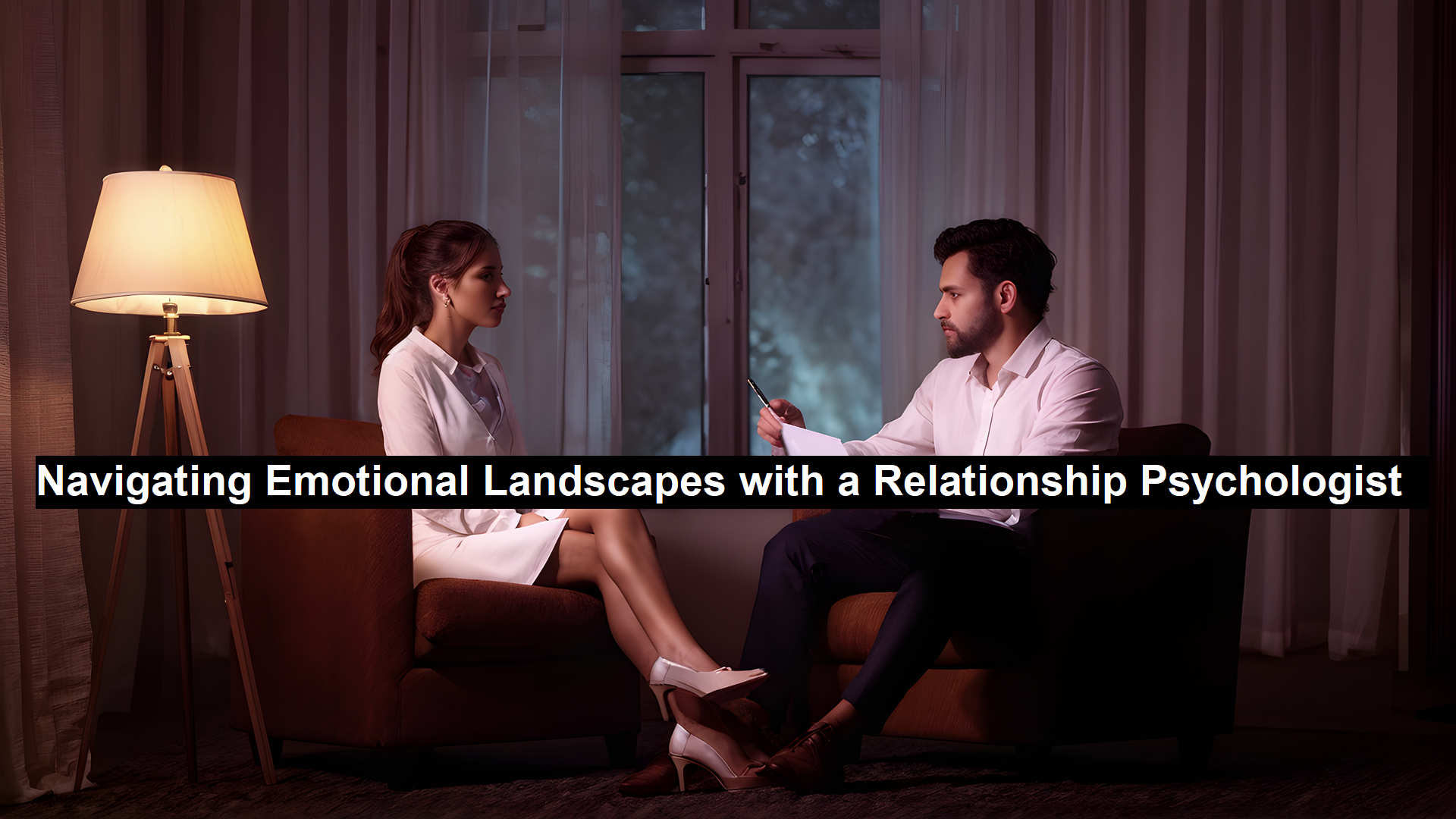Navigating Emotional Landscapes with a Relationship Psychologist
Relationships are the emotional bedrock of our lives. They provide comfort, challenge us to grow, and often reflect our deepest fears and desires. But just as landscapes shift with time and weather, so too do the emotional terrains of our personal connections. Whether you’re navigating the early stages of love, weathering a long-term commitment, or healing from a painful breakup, the journey can feel overwhelming and confusing. That’s where a Relationship Psychologist can become an invaluable guide.
Understanding the Role of a Relationship Psychologist
A Relationship Psychologist is a mental health professional who specializes in understanding the dynamics of human relationships. They help individuals and couples explore the psychological, emotional, and behavioral patterns that influence their connections. Unlike general therapists, relationship psychologists focus more deeply on interpersonal interactions, attachment styles, communication techniques, and conflict resolution within the context of romantic, familial, or even platonic relationships.
Their approach is evidence-based, often grounded in theories such as attachment theory, cognitive-behavioral therapy (CBT), and emotionally focused therapy (EFT). Their goal is not to “fix” people but to facilitate understanding, empathy, and emotional resilience so that both partners can grow individually and together.
Why Emotional Landscapes Matter
Before we dive into how a relationship psychologist can help, it’s essential to understand what we mean by “emotional landscapes.” Think of it as the emotional terrain you and your partner travel through every day — filled with peaks of joy, valleys of sadness, plateaus of routine, and the occasional emotional storm.
There are many components that form these landscapes.
- Past experiences and traumas
- Core beliefs and values
- Attachment styles
- Cultural and familial influences
- Current life stressors
Navigating them alone or with a partner can be challenging, especially when communication breaks down or emotions become overwhelming. This is where professional guidance becomes not just helpful but transformative.
Read: Beneath the Surface: The Hidden Demands of Maintaining Truly Safe Pool Water
When to See a Relationship Psychologist
Many people wait until their relationship is in crisis before seeking help. But just like regular check-ups for physical health, proactively working with a relationship psychologist can prevent emotional rifts from turning into unrepairable damage.
Here are some signs that it might be time to consult a relationship psychologist:
- Recurring arguments that never get resolved
- Emotional disconnection or lack of intimacy
- Trust issues or infidelity
- Life transitions (new job, moving, parenthood) causing strain
- Blended family challenges
- Different communication styles causing friction
- Unresolved childhood issues affecting current relationships
Working with a relationship psychologist isn’t a sign of failure — it’s a commitment to growth.
Tools and Techniques for Navigating Together
So how exactly does a relationship psychologist help? Here are some of the common tools and frameworks they use to support emotional navigation:
1. Attachment Theory Exploration
Understanding your and your partner’s attachment styles (secure, anxious, avoidant, or disorganized) can illuminate why certain emotional responses arise during conflict. A psychologist helps couples recognize these patterns and work towards a more secure connection.
2. Emotion-Focused Therapy (EFT)
This technique is intended to assist couples in recognizing, examining, and controlling their biggest feelings. It goes beneath surface-level arguments to the emotional needs driving behavior. EFT promotes responsiveness and empathy, and thus helps in resolving relationships.
3. Cognitive Behavioral Strategies
CBT-based techniques are often used to identify and change unhelpful thoughts and behaviors. A relationship psychologist might guide you to reframe negative thinking patterns and encourage healthier communication habits.
4. Communication Skills Training
Effective communication is often the key to emotional intimacy. Psychologists teach techniques like active listening, “I” statements, and non-defensive dialogue to help couples speak and hear each other more clearly.
5. Conflict Resolution Frameworks
Learning how to navigate disagreements constructively is a major focus. Instead of avoiding conflict or escalating into fights, couples learn to approach issues collaboratively.
Individual Growth within the Relationship
Personal development is one of relationship counseling’s most neglected facets. A relationship psychologist frequently assists people in analyzing the ways in which their expectations, fears, or past circumstances impact their relationship.
For example, someone who experienced emotional neglect in childhood may fear abandonment, leading to clingy behavior in relationships. Identifying this pattern can lead to personal healing and, ultimately, a stronger relationship.
By promoting self-awareness and emotional intelligence, therapy becomes a mirror and a roadmap. The more you understand yourself, the better equipped you are to relate compassionately and authentically to others.
Relationship Psychology Beyond Romance
While romantic relationships often take center stage, a relationship psychologist also supports:
- Parent-child dynamics
- Sibling rivalry and familial conflict
- Friendship breakdowns
- Workplace relationship issues
In any emotionally charged connection, a relationship psychologist helps untangle miscommunications and develop healthier boundaries.
The Journey Is the Destination
It’s crucial that one remembers that no relationship is perfect. There will inevitably be misunderstandings, feelings of instability, and ups and downs. How you handle such instances is what matters.
A relationship psychologist doesn’t offer a magic fix, but they do offer tools, insight, and a safe space to process, reflect, and rebuild. Through the therapeutic process, many couples report feeling not just “better” but more connected, resilient, and emotionally intelligent.
Finding the Right Relationship Psychologist
Choosing the right professional is critical to your journey. Look for someone who is:
- Licensed and accredited
- Specialized in relationship or couples therapy
- Aligned with your values or therapeutic goals
- Experienced with your specific concerns (e.g., LGBTQ+ issues, trauma, parenting)
Final Thoughts
Relationships are living, breathing entities — they require attention, intention, and nurturing. When emotional storms hit or the path becomes unclear, a relationship psychologist can be your compass. By offering guidance rooted in psychology and compassion, they help you traverse the emotional landscapes of love, connection, and self-discovery.
Whether you’re seeking healing, growth, or simply a deeper connection with those you care about, working with a Relationship Psychologist NYC can transform not just your relationships, but your life.

